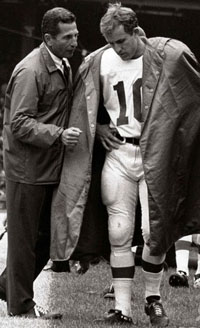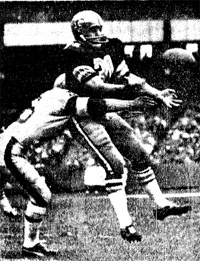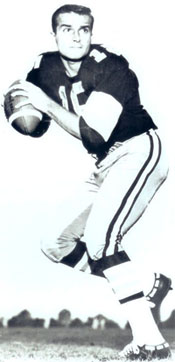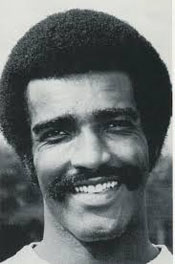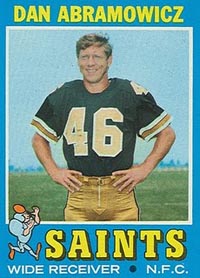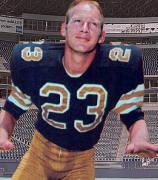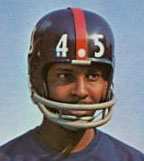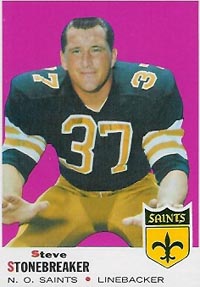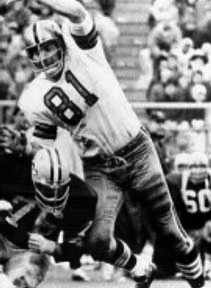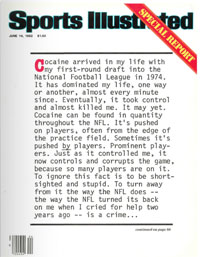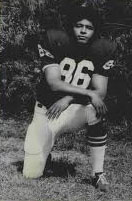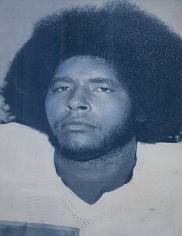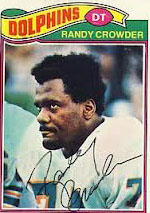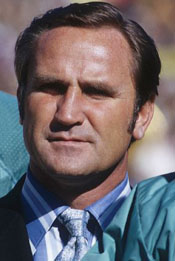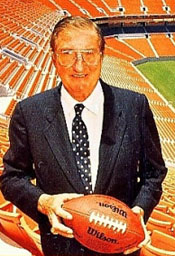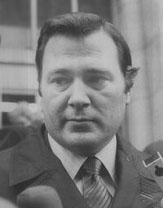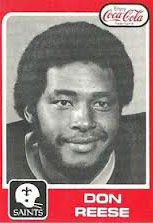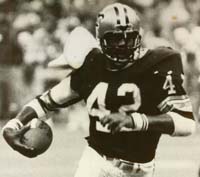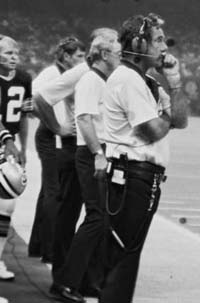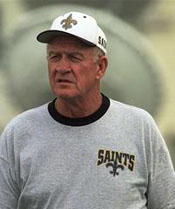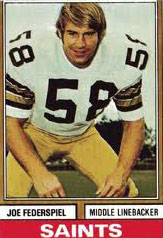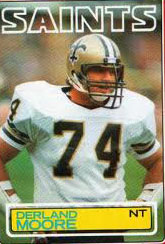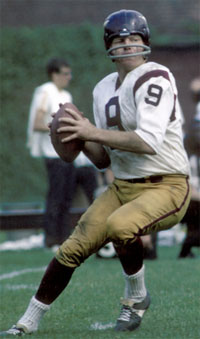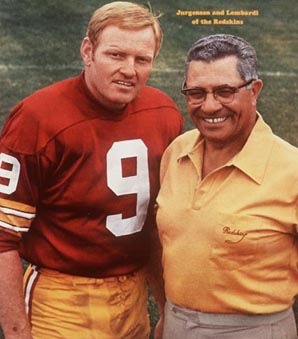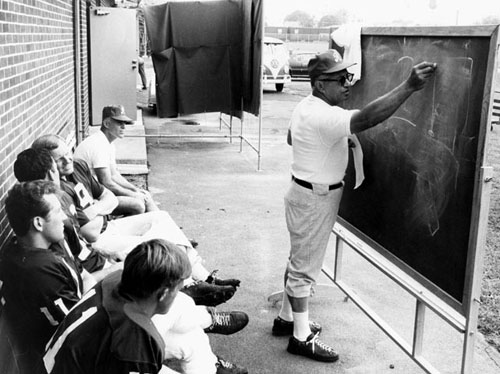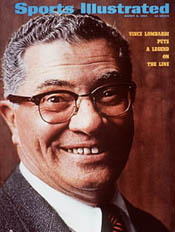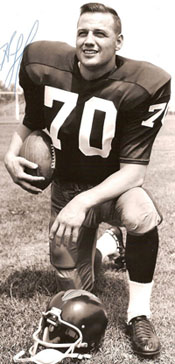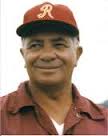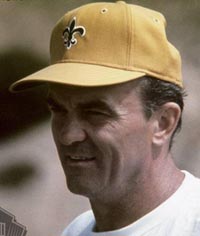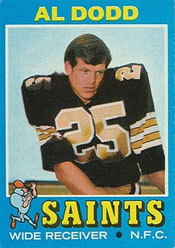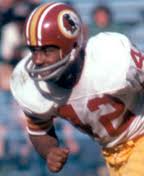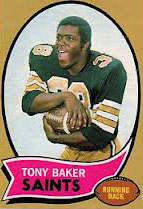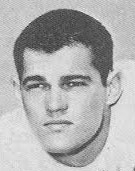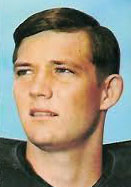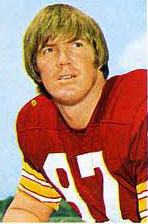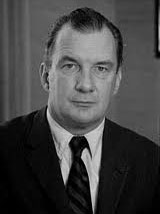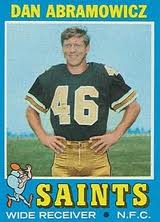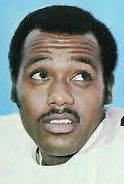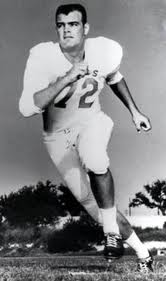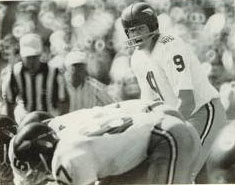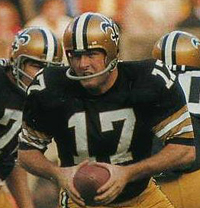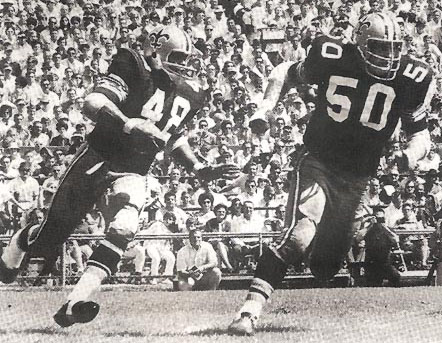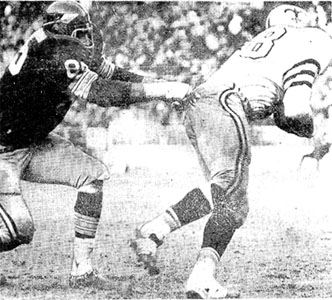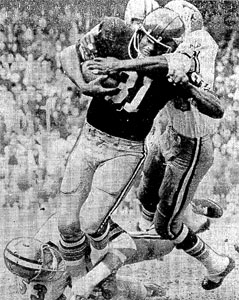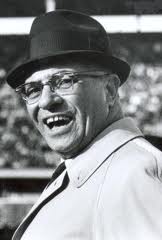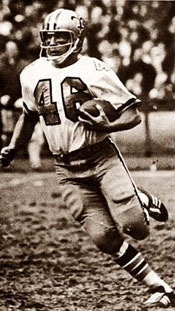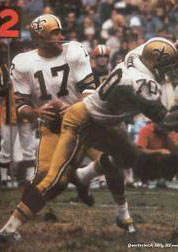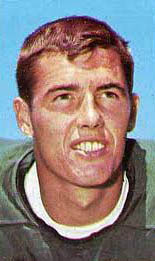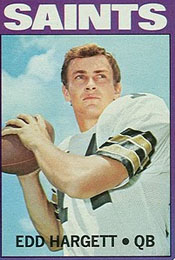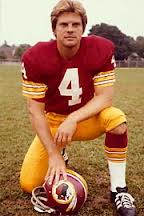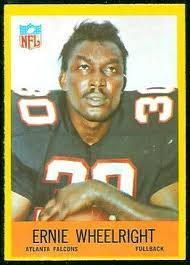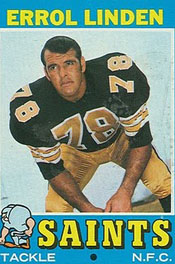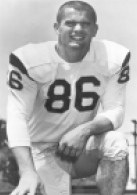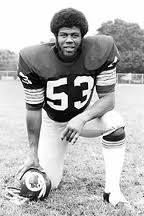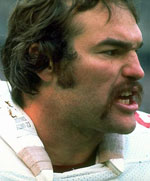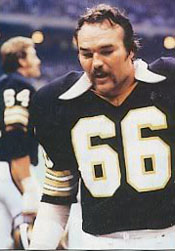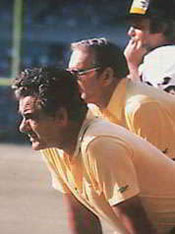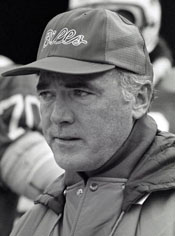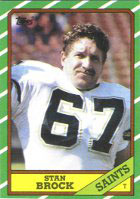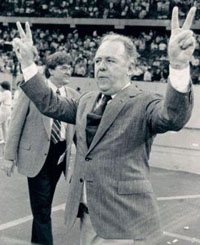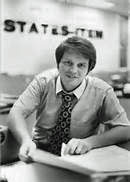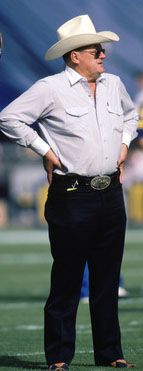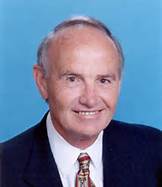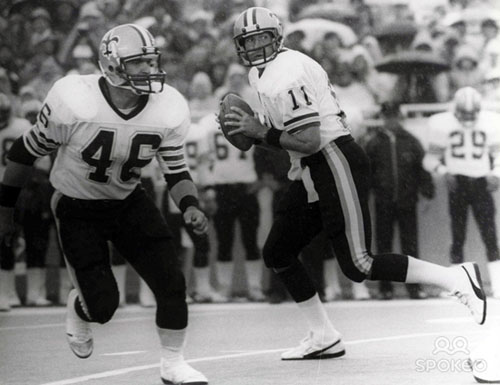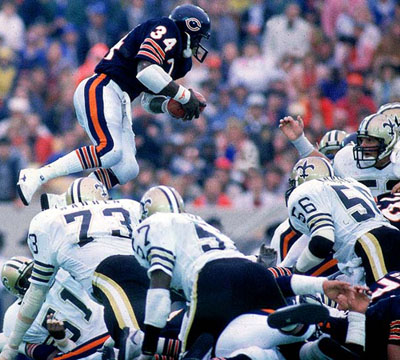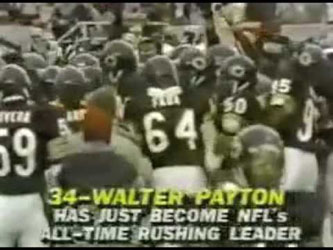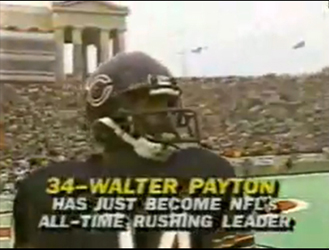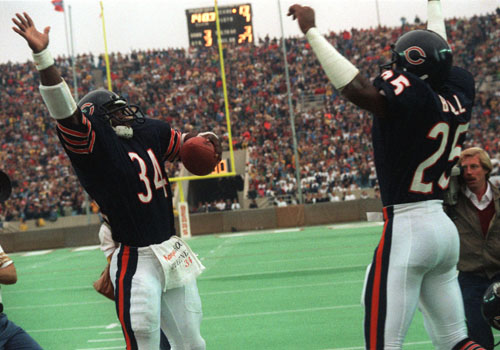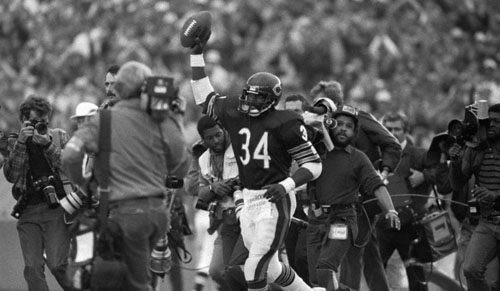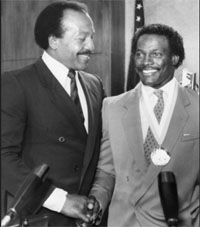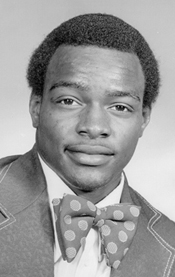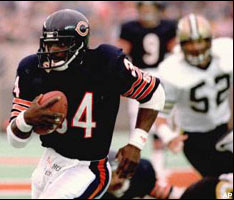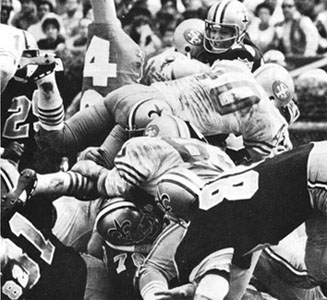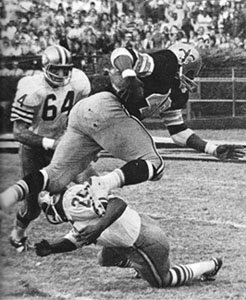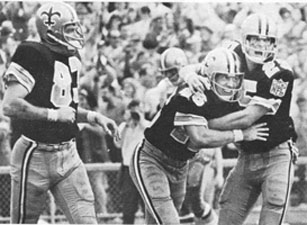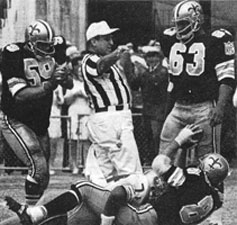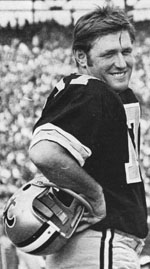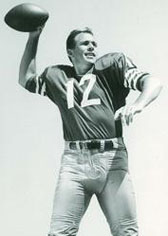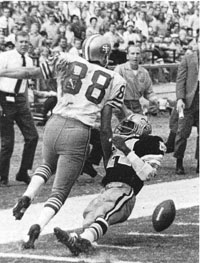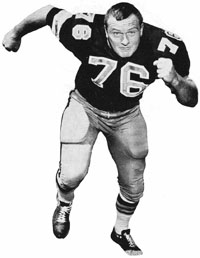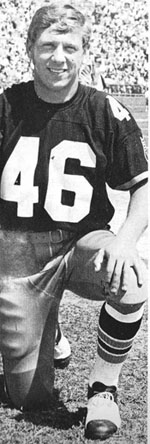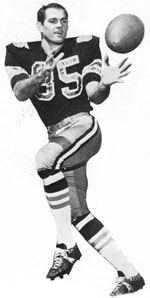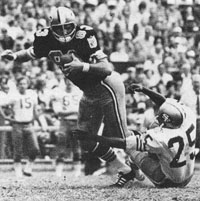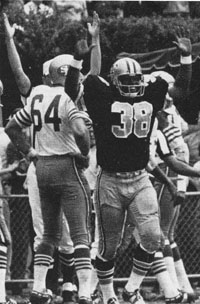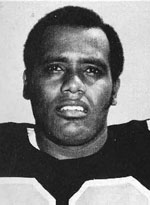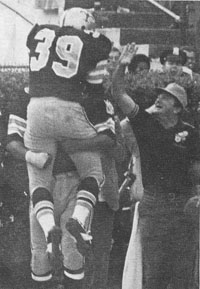Profile: Don Reese - II
Memorable Games: Vince's Redskins - I
Memorable Games: Vince's Redskins - II
When the Bills visited the Superdome on September 21, 1980, it didn't take former Saint OG Conrad Dobler long to get into it with one of his former teammates. As Conrad recalled in his autobiography:
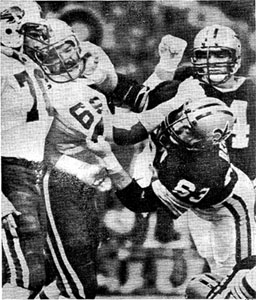
mix it up after a play. Even though Dobler played for the Saints last season he apparently wasn't too welcome by his old teammates. On the Bills' first offensive play, New Orleans DT Mike Fultz, who had had his share of practice triumphs over me, came off the ball real hard and knocked me right on my back. I was really embarrassed - first, because I was appearing in the Superdome for the first time since the trade; second, because I knew the guy was a total blockhead who couldn't spell his own name; third, because I had way too much pride not to have been embarrassed. So five plays later, Fultz left the field with a hyperextended elbow. I can honestly say that that was one of the few times in my career I deliberately tried to hurt someone. We were running the ball, Fultz was pursuing, and as he tried to push off of me, he hooked his forearm just under my right armpit. I pinned it by pulling my arm against my rib cage and dropped straight to the ground. Fultz was too dumb to fall down with me; he resisted, and his elbow gave out.
Fultz's replacement, Barry Bennett, continued the war with Dobler.
On his first play against me he came out swinging, and he pounded me real good the rest of the game. Which was perfectly fine, because he also failed to make a single tackle. That was the primary purpose of my tactics - winning the war, the game, not the battle. I wound up receiving a game ball for the contributions I made to our victory over the Saints. Before and during the game.
The Saints led at halftime thanks to several Buffalo errors. 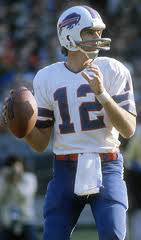
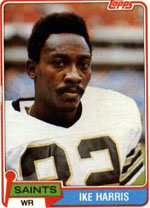
The visitors regrouped and dominated the second half, controlling the ball for 10 minutes more than the Saints, ringing up big play after big play.
Both QBs had good days.
The rushing game was the difference.
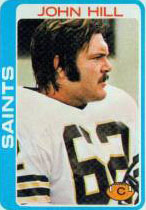
Saints' post-game comments
The last Bill off the field after the game, Dobler received loud cheers from the fans still left in the end zone.
I have no bitterness toward the team, the people in New Orleans, or anyone here except the new management. I can't stand that little so and so [Rosenbloom].
I have to come back here then if for no other reason than to visit with my many friends here.
The teams continued in opposite directions throughout the season.
Reference: They Call Me Dirty, Conrad Dobler and Vic Carucci (1988)
|
